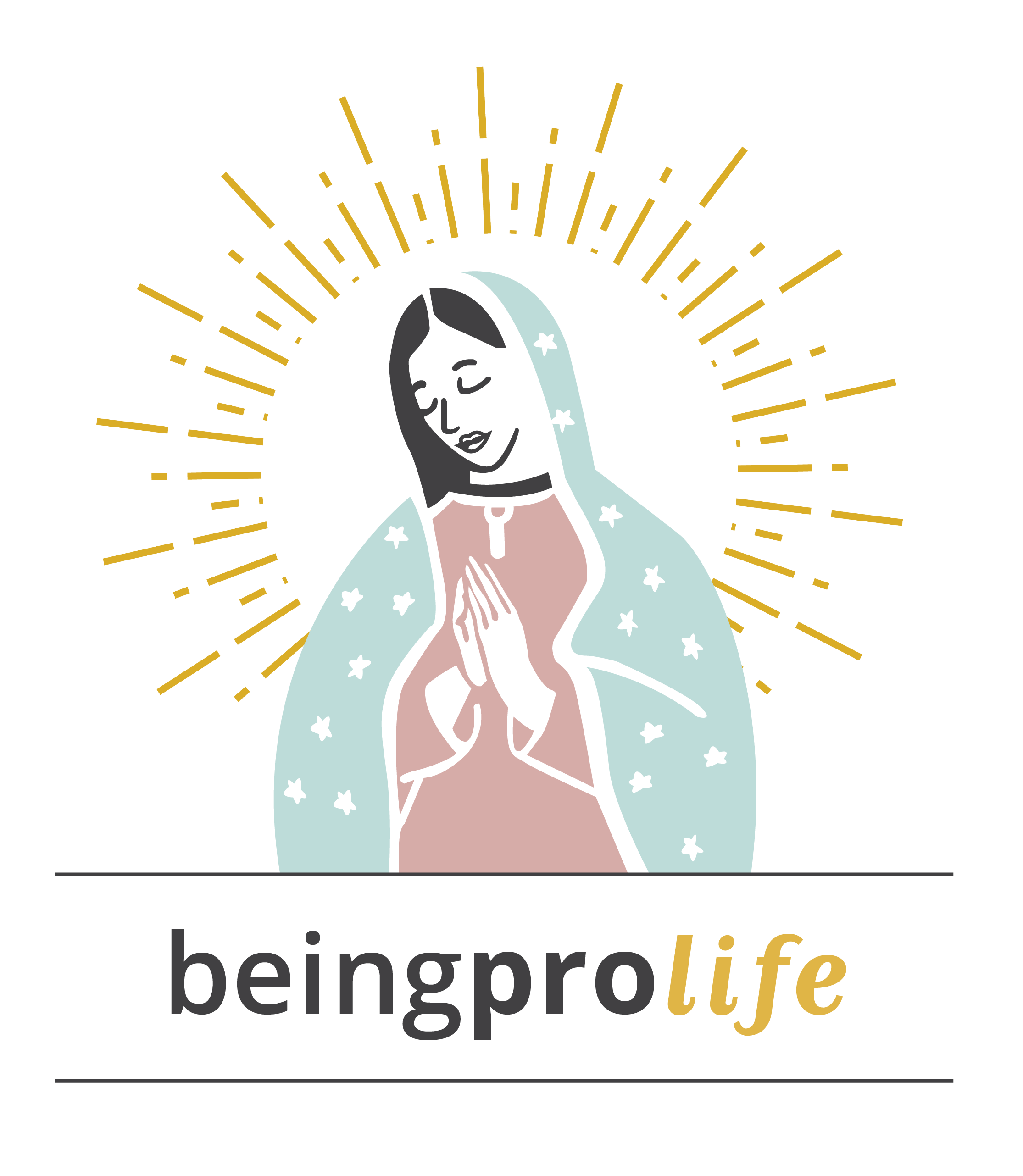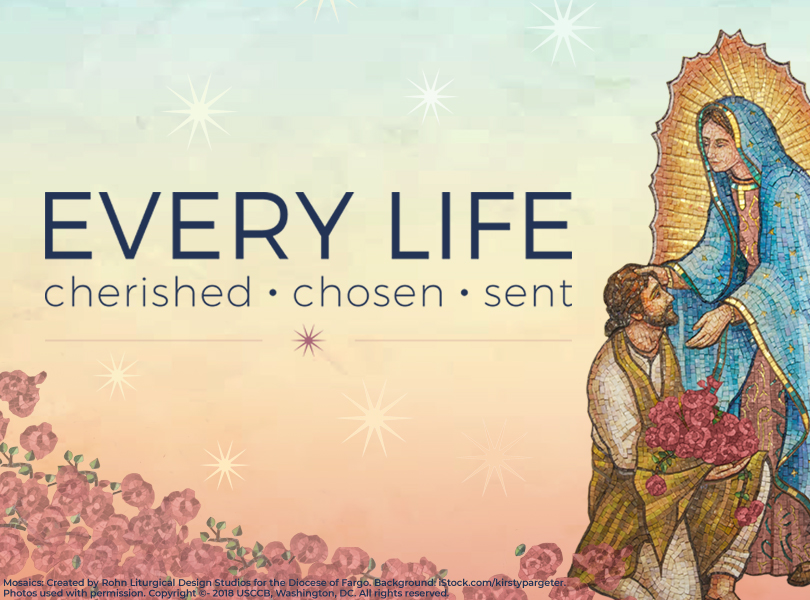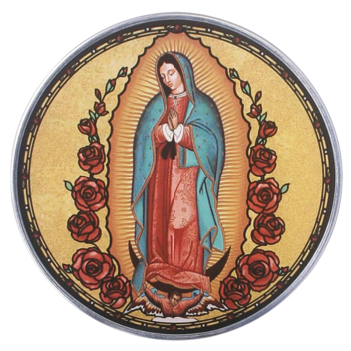Home > Offices > Respect Life Ministries > Respect Life Issues
Respect Life Issues

“As a gift from God, every human life is sacred from conception to natural death. The life and dignity of every person must be respected and protected at every stage and in every condition. The right to life is the first and most fundamental principle of human rights that leads Catholics to actively work for a world of greater respect for human life and greater commitment to justice and peace.”
Pastoral Plan for Pro-Life Activities (USCCB) Tweet
According to the Catholic Church, all people are created in the image and likeness of God. Regardless of any circumstance, every person has an inherent and immeasurable worth and dignity; each human life is sacred. The Office for Respect Life Ministries focuses on issues that violate the principle of Human Dignity that is an intrinsic part of Catholic Social Teaching. We also aim to provide ministry and care to all God’s people, especially those who may feel alienated or who may be grieving from loss. Explore below for more information and resources about the issues that fall under the Respect Life umbrella.
Life Issues
1 in 4 women in the United States has had an abortion (Gallup). Abortion hurts each one of us. As medical science and human reason confirm what we know by faith to be true, we provide hope and resources for all those affected by an abortion experience as well as information on abortion and alternative pregnancy options. CLICK HERE to be taken to our Abortion Resource Page.
“Human life must be respected and protected absolutely from the moment of conception. From the first moment of his existence, a human being must be recognized as having the rights of a person – among which is the inviolable right of every innocent being to life. ‘Before I formed you in the womb I knew you, and before you were born I consecrated you…'” ~Catechism 2270
Every life is precious. Adverse medical diagnoses are tragic, but no diagnosis is set in stone. As Catholics, we are called to support and to help those who are facing depression, disability, or fear in response to circumstances that make euthanasia attractive to them or to those around them. God’s plan is carried out through hardship and joy alike. Physician-assisted suicide entails making lethal means available to the patient to be used at a time of the patient's own choosing. By contrast, voluntary euthanasia entails the physician taking an active role in carrying out the patient's request, and usually involves intravenous delivery of a lethal substance. CLICK HERE to be taken to our Assisted Suicide & Euthanasia Resource Page.
Bioethical Issues is a topic that we, as Catholics, must take into consideration in our daily lives. As science continues to progress, we Catholics must pause and evaluate the moral implications of each new horizon. God has called us to cooperate fully with His divine plan. Increasing our intelligence and grasp of the universe must be balanced with diving deeper into our knowledge of God and his moral plan for humanity. The best resource available for Bioethical Issues is currently the website for The National Catholic Bioethics Center. This thorough resource provides everything a person would need at their fingertips when confronted with a bioethical dilemma. CLICK HERE to be taken to the NCBC Website.
Ending the life of a human being prematurely means denying that person a chance at reconciliation. Every human has fallen short of divine perfection and every human is deserving of grace. We must be advocates for true rehabilitation, not for vengeance. CLICK HERE to be taken to our Capital Punishment Resource Page.
“In his address to Congress during his 2015 Apostolic visit to the United States, Pope Francis, echoing the views of his predecessors, called for ‘the global abolition of the death penalty.’ He further stated that, ‘[A] just and necessary punishment must never exclude the dimension of hope and the goal of rehabilitation.’ As the Catechism of the Catholic Church now provides, ‘The death penalty is inadmissible because it is an attack on the inviolability and dignity of the person." ~USCCB Committee on Domestic Justice and Human Development Issues
1 in 3 women and 1 in 4 men have experienced violence from an intimate partner. The hidden pain and turmoil present to those who face mental and physical abuse every day is unbelievable. Through these online resources, we aim to provide help to those in these situations as well as to educate the community in how to recognize signs of domestic violence. Each parish is called to be a safe haven to those in need. CLICK HERE to be taken to our Domestic Violence Page.
“Violence against women, inside or outside the home, is never justified. Violence in any form-physical, sexual, psychological, or verbal is sinful; often, it is a crime as well.” ~USCCB (When I Call for Help)
As children, part of our vocation is caring well for our parents and relatives who helped to raise us. Caring for an aging loved one can be fraught with demanding choices, grim circumstances and great uncertainty. We hope to share church teaching as well as provide resources to those who find themselves unsure of how to care for the elderly in their last days. CLICK HERE to be taken to our End of Life Resource Page.
The concept of palliative care has recently been evolving beyond pain control and management and into holistic care that takes mind, body, and spirit into consideration during treatment. This holistic approach promotes the dignity of the human person and provides comfort to those who are suffering. CLICK HERE to be taken to our Palliative Page.
"We seek to do more than merely cure a physical illness.
Like Jesus, we heal the whole person. We care for people in such a way that, whether or not we can physically cure their illness, they find strength and comfort in knowing God's abiding love for them, despite their experience of chaos." ~Cardinal Joseph Bernadin
More and more of our population is falling to risk of human trafficking as people feel isolated from help or resources to escape terrible, manipulative situations. This use of humans as property and products further destroys the value placed on all life. CLICK HERE to be taken to our Human Trafficking Resource Page.
“It is not possible to remain indifferent before the knowledge that human beings are bought and sold like goods... It is precisely on this level that we need to make a good examination of conscience: how many times have we permitted a human being to be seen as an object, to be put on show in order to sell a product or to satisfy an immoral desire? The human person ought never to be sold or bought as if he or she were a commodity. Whoever uses human persons in this way and exploits them, even if indirectly, becomes an accomplice of injustice.” -- Message on the occasion of the annual Lenten “Fraternity Campaign” in Brazil
Ministries of Care
40 Days for Life is an internationally coordinated 4-day campaign that aims to end abortion locally though prayer and fasting, community outreach, and a peaceful all-day vigil in front of abortion businesses. We have two active ministries at both of the surgical centers within the Archdiocese of Cincinnati. Click here for Cincinnati and here for Dayton.
Sidewalk Advocates for Life aims to train, equip, and support communities across the United States and the world in sidewalk advocacy: to be the hands and feet of Christ, offering loving, life-affirming alternatives to all present at abortion and abortion-referral facilities, thereby eliminating demand and ending abortion. To receive training in this ministry contact Cincinnati Right to Life at [email protected]
"I am in this movement today because of ordinary people who took on an extraordinary task. My former abortion clinic is closed because of their sacrifice. Babies are alive because of them. Women are no longer being hurt by abortion in their community. You can do this. You can save a life." ~ Abby Johnson, Former Planned Parenthood Clinic Director
While loss is natural part of the human experience, it is not always natural to know how to grieve and grieve well. Often, the hardest part of grief is acknowledging the need for help and asking for it. Providing Bereavement Ministry must go beyond making funeral arrangements for the deceased. We must help those left behind return to life. CLICK HERE to be taken to our Bereavement Page.
"Every time a family in mourning — even terrible mourning — finds the strength to guard the faith and love that unite us to those we love, it has already prevented death from taking everything. The darkness of death should be confronted with a more intense work of love. In this faith, we can console one another, knowing that the Lord has conquered death once and for all. Our loved ones are not lost in the darkness of nothing: hope assures us that they are in the good and strong hands of God." ~Pope Francis, 17 June 2015
Across all age groups, approximately 600,000 people in the United States are Deaf (Gallaudet University). In order to promote the meaningful participation of all Catholics within the Church, it is important to not only be aware of different types of accommodations, but also different types of cultures that may arise from physical differences. There is a broad spectrum of auditory differences which call for varying types of accommodations or programs. In order to best serve this population the Archdiocese of Cincinnati recently welcomed Fr. Charles Munachiso Onumaegbu, a priest fluent in American Sign Language (ASL), to serve as Chaplain for Deaf Ministry across the Archdiocese. CLICK HERE to be taken to our Deaf Ministry Page.
“The measure of love is to love without measure." ~St. Francis De Sales
We are called to meet the specific needs of persons with disabilities, but it is incredibly important to create a culture of inclusion within our parishes. Only when all are fully welcomed to participate, will the Body of Christ be complete. Because of this important need we now have an Office for Persons with Disabilities. This office has its very own set of pages. CLICK HERE for immediate access to resources for persons with disabilities.
"It is essential that all forms of the liturgy be completely accessible to persons with disabilities, since these forms are the essence of the spiritual tie that binds the Christian community together. To exclude members of the parish from these celebrations of the life of the Church, even by passive omission, is to deny the reality of that community. Accessibility involves far more than physical alterations to parish buildings. Realistic provision must be made for Catholics with disabilities to participate fully in the Eucharist and other liturgical celebrations.” ~ Guidelines for the Celebration of the Sacraments with Persons with Disabilities
Did you know that one in five adults suffer from mental illness? That number may seem high, but like many other disabilities, mental illness is referred to as an “invisible disorder.” Often people suffer silently due to the stigma that is affiliated with a mental health diagnosis. Mental illness is not often addressed by the Catholic Church, but we are called by Jesus to recognize those who are suffering in our midst and to accompany them on their journey. CLICK HERE for access to resources on mental wellness. Contact Lisa Averion for our Mental Wellness ministry program.
“The stigma attached to mental illness forces many to hide the severity of their symptoms or those of a loved one. Many stop coming to church due to the stigma. Stigma is the single greatest barrier to people getting effective treatment. Leaders of a parish, diocese, or other Catholic organizations can fight stigma by learning the signs of mental illness and reaching out to those living with the illness.” ~ Pastoral Response to Persons with Mental Illness (NCPD, 2019)
Project Rachel, the Catholic Church’s ministry to those who have had an abortion experience, was founded in the Archdiocese of Cincinnati in 1994. It is a network of specially trained priests, religious, counselors, and laypersons who provide a team response of care for those suffering in the aftermath of abortion. In addition to referring for Sacramental Reconciliation, the ministry provides integrated services, including pastoral counseling, peer to peer ministry, spiritual direction, and referrals to mental health professionals. CLICK HERE to be taken to our Project Rachel Page.
“The Church’s first duty is to approach these people with love and consideration, with caring and motherly attention, to proclaim the merciful closeness of God in Jesus Christ. Indeed, as the Fathers teach, it is he who is the true Good Samaritan, who has made himself close to us, who pours oil and wine on our wounds and takes us into the inn, the Church, where he has us treated, entrusting us to her ministers and personally paying in advance for our recovery.” ~Pope Benedict XVI
Walking with Moms in Need is a national initiative of the United States Conference of Catholic Bishops to help parishes better support and accompany pregnant and parenting women. Joining in this initiative, parishes across the Archdiocese of Cincinnati are embarking on a Year of Service to assess, expand and communicate resources to moms in need in our communities. CLICK HERE to be taken to our Walking With Moms in Need page.
As Pope Francis reminds us, our parishes are called to be “islands of mercy in the midst of a sea of indifference.”


